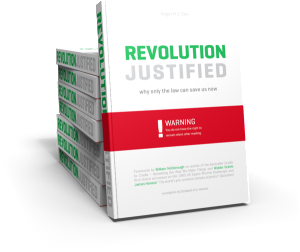Law as a solution to climate change

Recent court filings in Europe accuse governments of insufficiently countering climate change
By Lieselot Bisschop
In 2012, Roger Cox, a Dutch lawyer, published a book called Revolution Justified: Why only the law can save us now. This provides a well-documented historic account of energy policy in the Global North and argues that both the contemporary market and political model have failed to start an energy revolution to address climate issues. As a consequence, human rights are at risk, which makes the judiciary a possible savior for this deadlock. The book argues that the legal system in many countries of the Global North (UK, US, EU) have the necessary elements to address energy and climate issues effectively. Roger Cox explained this in more detail during a TEDx talk.
 Inspired by this book, a law suit was filed against the Dutch government for taking insufficient measures to address climate change. The core argument is that the government has not taken sufficient action to prevent foreseeable harm. Urgenda – an NGO focused on sustainability and innovation – filed a law suit together with more than 800 co-plaintiffs, on November 20, 2013. On April 14, 2015 the case is expected to be heard before the district court in The Hague.
Inspired by this book, a law suit was filed against the Dutch government for taking insufficient measures to address climate change. The core argument is that the government has not taken sufficient action to prevent foreseeable harm. Urgenda – an NGO focused on sustainability and innovation – filed a law suit together with more than 800 co-plaintiffs, on November 20, 2013. On April 14, 2015 the case is expected to be heard before the district court in The Hague.
On December 1, 2014, formal notice was sent to the Belgian government by a non-profit called “Climate Case,” founded by 11 scientists, musicians, politicians and business leaders. Similar to the Dutch climate case, they argue that the:
“wait and see attitude [of the governments] is not only morally reprehensible but also in violation of the international agreements; it is simply dangerous. A government can be expected to act carefully and forward-looking concerning the protection of its citizens’ prosperity and wellbeing. The release of greenhouse gas emissions, which Belgium disproportionately contributes to, will result in harm to both the current and future Belgian population. The government has an obligation to protect its citizens, even if the problem is of a global nature.”
A media campaign was started around the same time, informing the Belgian citizens about the initiative and asking them to join. Today, over 7,000 people have already signed the paperwork to be a co-plaintiff.
For more information on Cox’s book, click here.
For legal information on the Dutch case click here:
For updates on “Climate case” go here and here.
Dr. Lieselot Bisschop is on the SEJ faculty at John Jay College of Criminal Justice and an expert on the illegal trade in e-waste and tropical timber. Her book, Governance of the Illegal Trade in E-Waste and Tropical Timber will be available this spring.